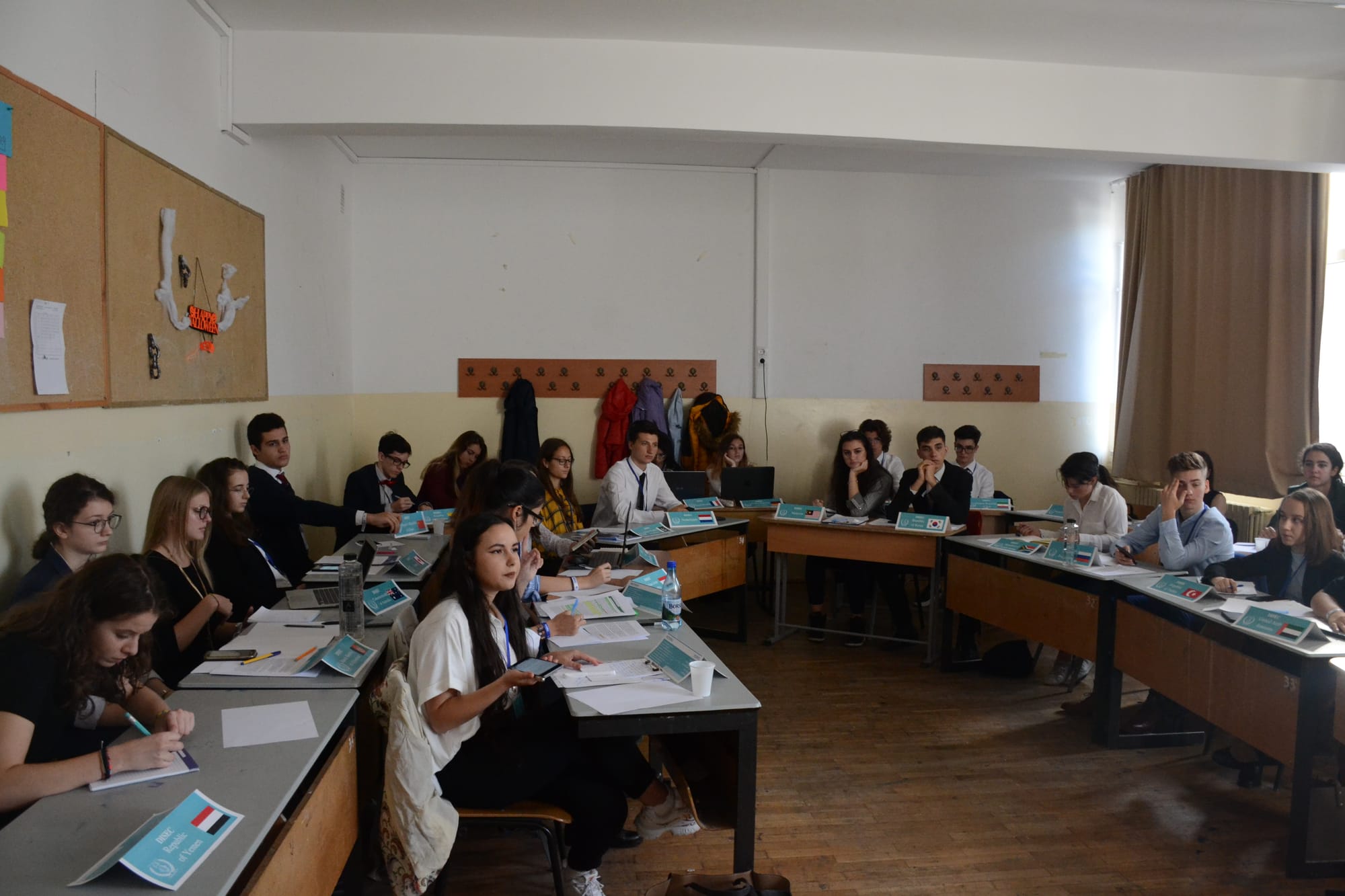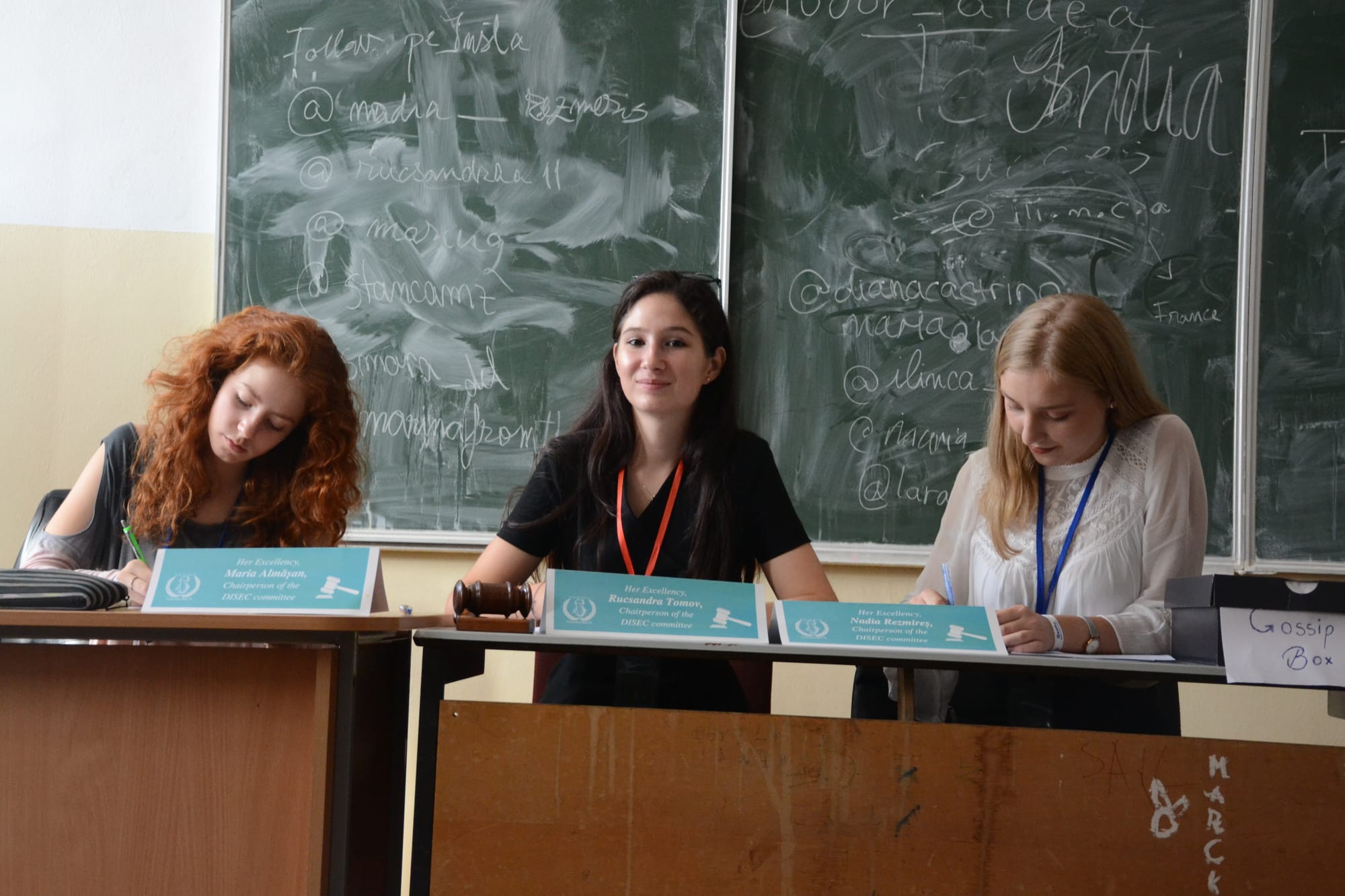DISEC, day 2

By Alexandra Enciu
A “theoretical battlefield” is the perfect description of today’s DISEC committee. The Russian Federation, The Republic of China, The United States of America and The United Kingdom fought fiercely to defend their beliefs regarding the problem of whether space should or should not be militarized.
The Russian Federation explained how not sending satellites is impossible because of constantly evolving technology and the never-ending thirst for knowledge. Right after, the Russian representative’s statement back-fired. The Republic of Kazakhstan asked how Russia can explain the over 300 satellites sent in space and if they are truly only for exploration. The delegate of Russia clarified, that even though the government sent that many satellites, the state has not even once attacked on the space front.
The South Korean delegate’s opinion on the matter was that sending satellites does not harm anyone, as long as its only purpose is science. The only issue is that they shared Kazakhstan’s doubts concerning Russia’s satellites and the huge amount of them. In response the delegate said that The Federation would not stop sending satellites in space, as an intergalactic war is inevitable.
The USA recognizes that they are sending satellites to protect the people. The delegate of Iran quotes President Trump “space is a war fighting domain” and accuses the USA’s delegate of contradicting the initial country’s ideology.
Germany, France, Iran, Colombia and India agree with the idea that there is a risk of war and everyone should be prepared for it, even though none of them are fond of the possibility that there could indeed be a war in space. Vietnam even declares its neutrality should any space war begin.
Another question tackled during the conference was how to refer to such weapons. Russia mentioned that the sent satellites also have good qualities such as increasing the GPS signal. China put into words what every delegate in the room was thinking and considering, everyone was feeling threatened by the USA’s expansion. Furthermore, China attacks the United Kingdom asking how the agreements will be kept after the BREXIT. The UK explained that it would not cause as many problems as expected, because they had invested in the European capabilities and the states should look past the political setbacks and continue the collaboration.
Throughout the whole session China and the USA had a very heated argument. The United States agree with the fact that GPS is a great method to find the way when lost, but accuses the Chinese to have used GPS to aim and bomb targets.
Italy and Israel share the same point of view by saying that a certain transparency should be kept when building these satellites. There is also a proposition to organize a committee where each state should report their actions.
As an obvious result of the discussion that there is no resolution, China draws the attention to the fact that the debate led to nothing more than excessive finger pointing. The delegate also mentions it being alright to use GPS in a military context, because forbidding it, would be like forbidding the use of wheels in a war. Russia then proposes another treaty that is more up to date. France is concerned that even with the new treaty, Russia will not be able to keep its promises, the same way they could not keep their promises post-Cold War.
Afghanistan concludes with its worries that each country’ s national security is a threat to other country’s securities.

